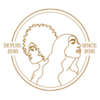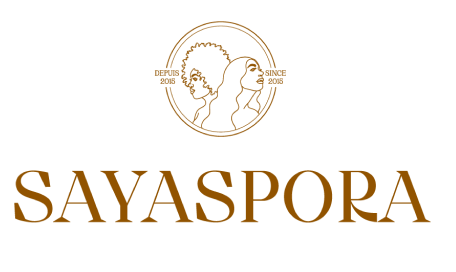
By Ifeoma Emelurumonye
African hair, due to its types of texture, styling and over all creativity, is one of the most diverse hair ever seen. And its care culture, from how to treat and style those kinky-curly-weaving textures, has always been very important.
African hair has always been a part of black people’s identity. It could be used to recognize the age, birthplace, clan membership, social, economic, marital status and occupation of the person and obviously considered a sign of beauty and pride. A quick Google search shows the different hairstyles of African populations and how haircare has always been fundamental, not only concerning the pattern but even the maintaining of the hair (moisturizing, protective styles, oil application, etc), for women and men.
The question remains, how could something so culturally and socially important, established in the roots of a population, be taken apart for so long? Why did we stop applying chemical relaxers to our hair only a few years ago? In short, what happened?

We have to consider two main facts that occured to African people in history. First, the shaving of slaves’ hair in America: one of the most dehumanizing things done to Africans so nobody could identify the origin of the person and even if slaves were allowed to grow their hair, it had to be covered by a scarf. Second, the colonization of African countries that introduced a new prototype of hair considered till now, for many, a sign of beauty and prosperity. And this last thing is what my generation of African-Europeans and I have experienced when we talk about hair care during our childhood.
But why do we change the pattern of our natural hair? For the same reason a black person continues to bleach their body and why a white person stays under the sun until they’re burnt: we always want to resemble something or somebody totally different from us. And this is what happened in Africa.
When English, French and Portuguese colonialists arrived, the African population discovered something different from what they used to see every day: light and pale skins, straight, blonde, red and light brown hair. And because the western world has been associated with prosperity, to be like the colonizers was considered a sign of beauty.
I believe that when we started to emigrate and live in those same western countries, seeing their beauty model every day and everywhere, convinced us more we have to follow this beauty prototype and try to be more like them.
But things have changed and are still changing. I believe that we have finally discovered and understand the potential and the beauty of our hair.
 Back in the days, it was difficult and rare to see African and black people with their own natural hair in popular culture – tv, movies, or magazines. Now with series like “Black-ish”, “Grown-ish” and “Insecure”, we have explosions of different hairstyles done with our hair, from braids to cornrows. Many musicians (Solange and Beyoncè Knowles, Alicia Keys, etc), actresses (Lupita Nyong’o) and models (Imani Hammam, Herieth Paul) show more and more their natural textures, making natural hair finally accepted in all types of environments.
Back in the days, it was difficult and rare to see African and black people with their own natural hair in popular culture – tv, movies, or magazines. Now with series like “Black-ish”, “Grown-ish” and “Insecure”, we have explosions of different hairstyles done with our hair, from braids to cornrows. Many musicians (Solange and Beyoncè Knowles, Alicia Keys, etc), actresses (Lupita Nyong’o) and models (Imani Hammam, Herieth Paul) show more and more their natural textures, making natural hair finally accepted in all types of environments.
We are even facing the phenomenon of “culture appropriation” from many celebrities (the Kardashians to state an obvious example), making African hairstyles just to create a trend, forgetting and not mentioning at all what there is behind such type of hair.
Though there is appreciation, at the same time there is a lack of respect for afrocentric hair. That is why there is a need for us to embrace the topic, talk, and share more knowledge of it.
Thus, the importance of tools, materials and networks of people online talking about African hair is fundamental; alongside events and panels that gather natural hair experts around the world talking the same language.
When I started my natural hair journey, I watched a lot of videos and tutorials on what I was about to face. Every video started with something that one might think to be obvious, but instead is very important to understand: we have to LOVE our hair.
Until we, African women, love ourselves, our body, our skin, our kinky hair we won’t be able to let other people understand and appreciate our hair.
Now we have the right models, the right tools, the right spirit: my African sisters, let the hair revolution begin!


Ifeoma Emelurumonye
Writer
Ifeoma is an Italian-Nigerian doctor specializing in public health in Turin, Italy. She defends women's health and considers herself part of the new feminist generation with the aim of educating and communicating through her work and her other passions: music, art and fashion. She loves to read and hopes that through her words, readers will be able to understand what she stands for and the message she wants to express.
@ifyze
Similar articles

December 16, 2024




